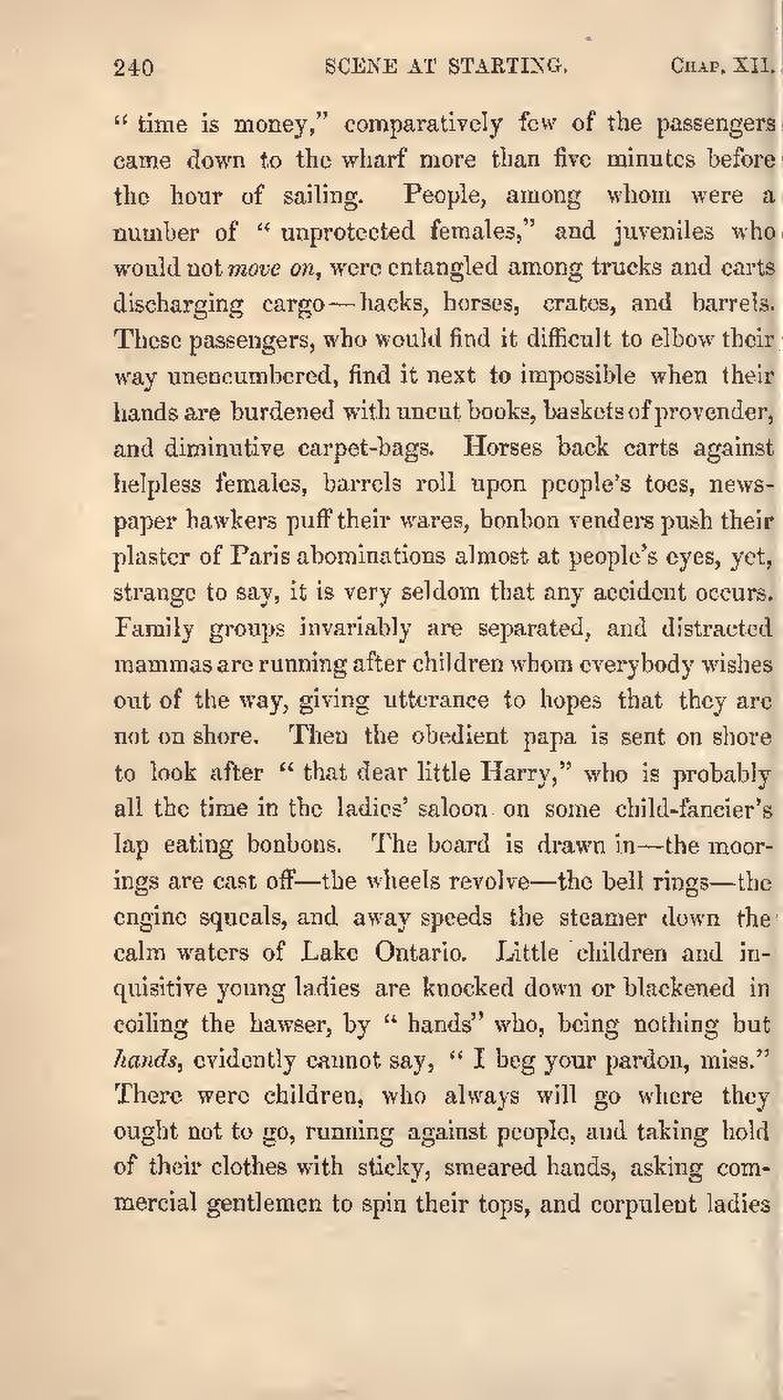"time is money," comparatively few of the passengers came down to the wharf more than five minutes before the hour of sailing. People, among whom were a number of "unprotected females," and juveniles who would not move on, were entangled among trucks and carts discharging cargo—hacks, horses, crates, and barrels. These passengers, who would find it difficult to elbow their way unencumbered, find it next to impossible when their hands are burdened with uncut books, baskets of provender, and diminutive carpet-bags. Horses back carts against helpless females, barrels roll upon people's toes, news-paper hawkers puff their wares, bonbon venders push their plaster of Paris abominations almost at people's eyes, yet, strange to say, it is very seldom that any accident occurs. Family groups invariably are separated, and distracted mammas are running after children whom everybody wishes out of the way, giving utterance to hopes that they are not on shore. Then the obedient papa is sent on shore to look after "that dear little Harry," who is probably all the time in the ladies' saloon on some child-fancier's lap eating bonbons. The board is drawn in—the moorings are cast off—the wheels revolve—the bell rings—the engine squeals, and away speeds the steamer down the calm waters of Lake Ontario. Little children and inquisitive young ladies are knocked down or blackened in coiling the hawser, by "hands" who, being nothing but hands, evidently cannot say, "I beg your pardon, miss." There were children, who always will go where they ought not to go, running against people, and taking hold of their clothes with sticky, smeared hands, asking commercial gentlemen to spin their tops, and corpulent ladies
Page:The Englishwoman in America (IA englishwomaninam00birdrich).pdf/254
240
SCENE AT STARTING.
Chap. XII.
